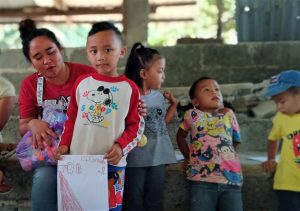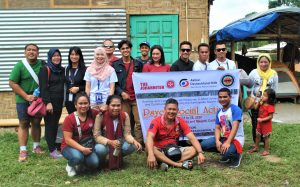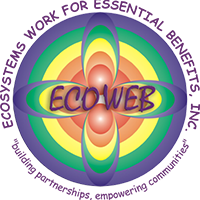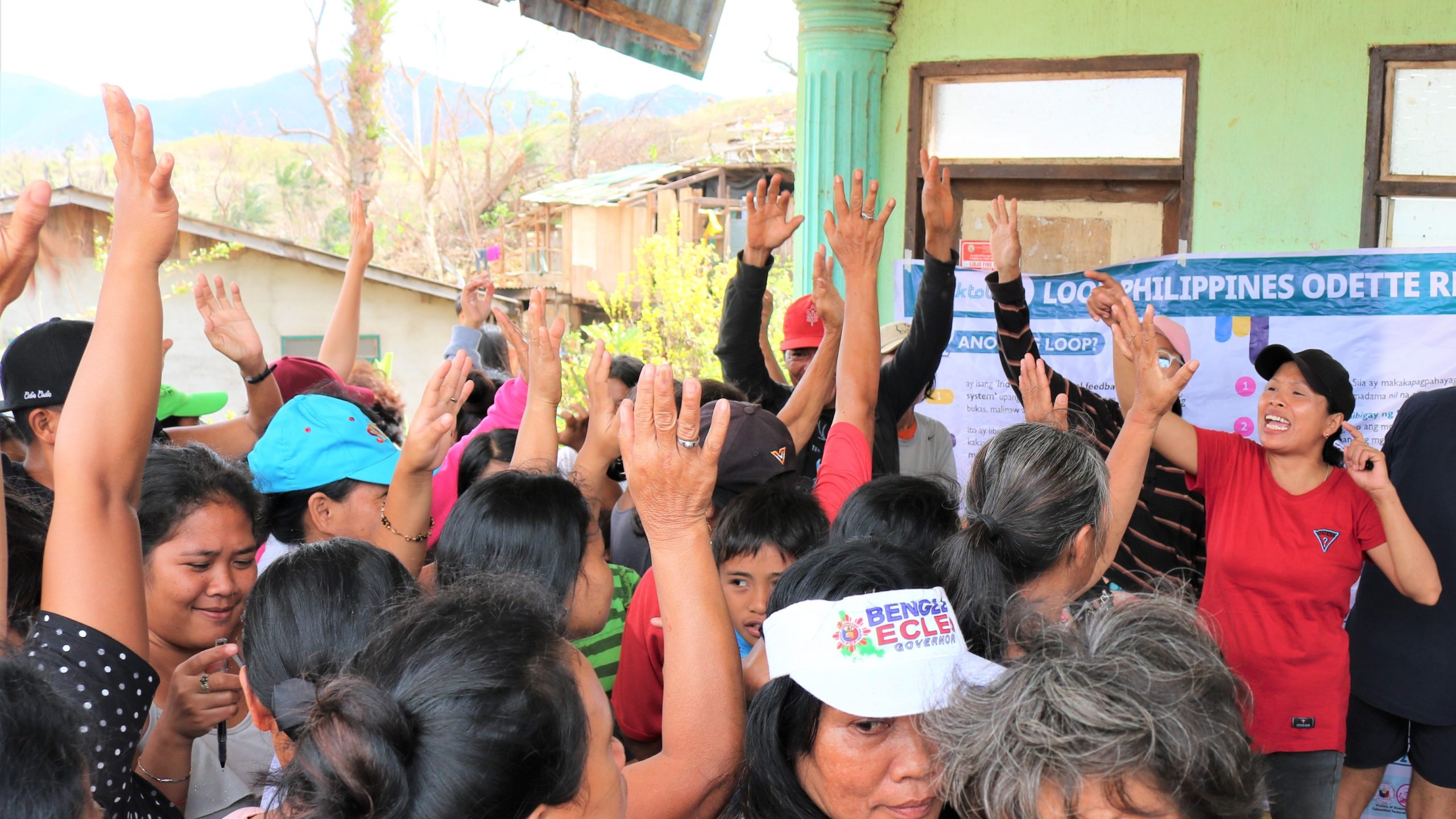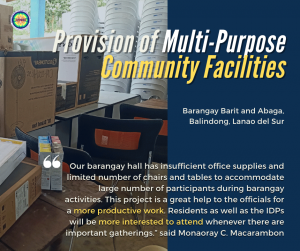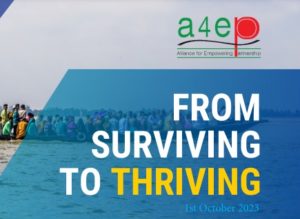A total of 33 Self-Help Groups (SHGs) from different earthquake-affected barangays in North Cotabato participated in the Psychosocial Activity conducted by Suara Kalilintad Association, Inc. (SKAI) held last March 11-15, 2020.
The project, “Survivor and Community-Led Response (sclr) to Most Vulnerable Families and Communities Affected by Earthquake Swarm in Cotabato” implemented by ECOWEB in partnership with The Johanniter International Assistance and Aktion Deutschland Hilft, aims to strengthen and capacitate local residents who were affected by the earthquake last October 16, 29, and 31, 2019. Aside from the cash assistance they received, they are also privileged to be visited by SKAI to undergo psychosocial intervention.
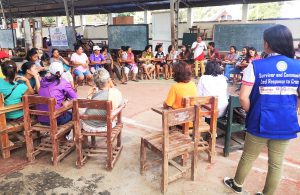
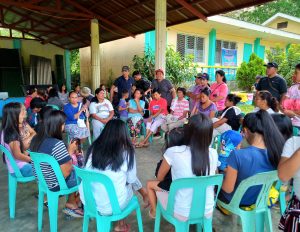
Ecosystems Work for Essential Benefits, Inc. (ECOWEB, Inc.) spearheaded the community assessment which thereof, the need to conduct Psychosocial activity was formulated.
The program was implemented in 6 barangays namely Ilomavis, Perez, Buena Vida, Bangolanon, Malasila (San Isidro), and Buhay with a total of 577 participants composed of 346 females and 231 males with children who are being safeguarded and ensured recreational activities.
Despite the lack of conducive and spacious areas with complete facilities, interested participants with the help of the local government officials were able to pull up immediate action to look for a venue. In various barangays – a classroom, chapel, waiting shed, and a temporary school housed them during the entire separate days of the said activity.
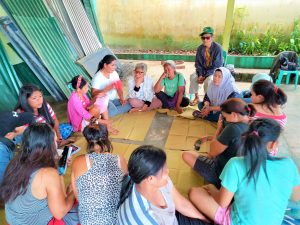
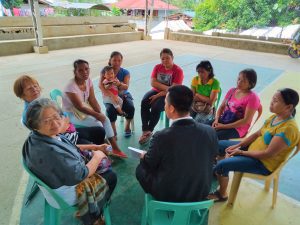
Suara Kalilintad Association, Inc., a renowned organization based at Pagalungan Maguindanao strives for the attainment of unity, peace, and development among internally displaced people of both natural and human-induced disasters.
The psychosocial intervention team was headed by the SKAI Chairperson herself, Samira C. Usman with the coordination of ECOWEB response team supervised by the Project Officer, Moises Palma, Jr. Concordantly, both organizations support the provision psychosocial to the identified participants with the focus on vulnerable sectors namely, children, women, elderly and persons with disability (PWD). The support was provided in the lens of raising awareness of post-disaster effects, counseling persons in distress, identify coping mechanism, and creating a safe space for children to play and express.
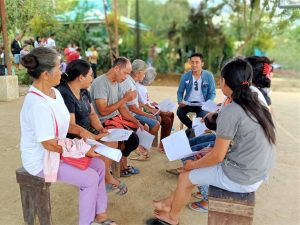
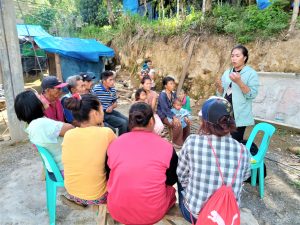
“This traumatic earthquake experience left us [survivors] so helpless and it seems life for us is already meaningless. We don’t know when these tremors would end. It left us with so many sleepless nights due to fear.” said Josephine Nagera, a 52-year old resident of Brgy. Perez.
The introduction of human rights made the participants learned about being valuable. It was about instilling to them the globally-exercised rights despite calamities and disasters. It was then highlighted that the survivors, deserve immediate care and support may it be social, physical, emotional, or spiritual. All endowed rights are what makes them, humans.
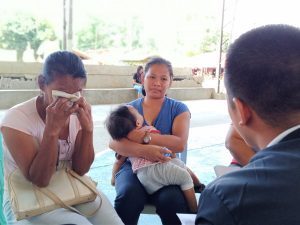
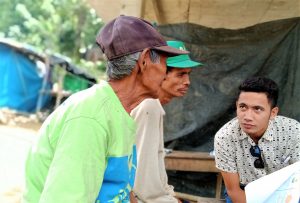
The SKAI used the approach called Pagdadala Model Activity as one way to identify one’s problems, coping mechanisms, and motivation in the listening session activity. One instrument used is a sheet of paper printed with thunder, sunflower, and sun. Each clipart encourages participants to share experiences ranging from the hardest problems and emotions to their coping mechanisms in the span of time during the earthquake to the current situation. The session provided them a safe avenue to self-expression and it was made sure that all of the information is kept confidential amongst them except for sharing each’s coping mechanism to moving forward.
“Through relaxation and prayers, I managed to handle my problems. And I get my strength from my children. I also think of God who gives strength to us all.” expressed by Nelia Bungcal, a 58-years old resident of Brgy. Bongolanon.
It may not be seen in the eyes of the children the traumatic experiences but it can be traced to the deepest consciousness once they open their mouth. To traverse any emotional and behavioral disturbances felt by these children, the activity purposely aids them by letting them create a visual representation and trying to share it with everyone what it is all about. With this, children did freely amplify their hopes and dreams for oneself and their family.
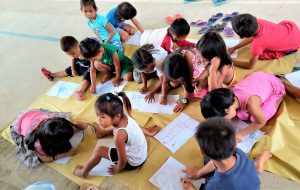
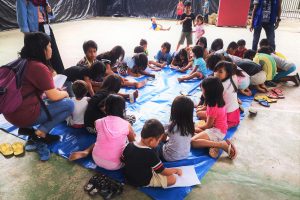
With the power of circle strategy, as part of the survivor and community-led response approach introduced by ECOWEB to the participants, this gives them an inclusive avenue where everything that has done within that circle entails respect, cooperation, unity, and openness.
Nasser Matula, a staff of SKAI, concluded the activity by strengthening the coping mechanisms entrenched to each one. It may be in a form of interpersonal or intrapersonal communication, social activities, or even by eating and sleeping. Sharing is healthy for as long as there is due diligence upon voicing and most importantly, knowing to whom trust is given.
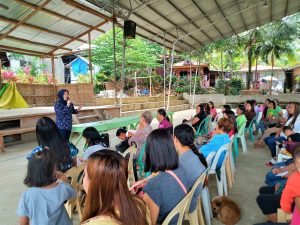
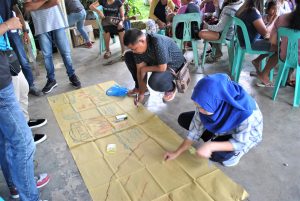
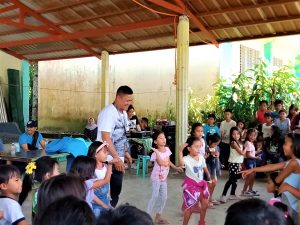
“In every situation, always remember HOPE “Hold On, Pain Ends”. Matula added. Everyone has their own way in responding to life difficulties. In the depth of despair, one should always remember to create a space to think and cope.
The activity was done successfully through the cooperation of both facilitators and participants. Everyone was grateful as the project achieved its purpose of strengthening and capacitating survivors.
“Thank you so much EcoWEB and the Johanniter for providing cash assistance. We are forever thankful to you as you taught us to be resilient. On behalf of these people, I also congratulate you as the project ends successfully. EcoWEB helped us explore our capacity as an individual. [And] we thank you for conducting Psychosocial Activity. This is so much useful.” as Emelyn Diez, a 47-year old resident of barangay Ilomavis, expresses her appreciation speech as the activity ended.
